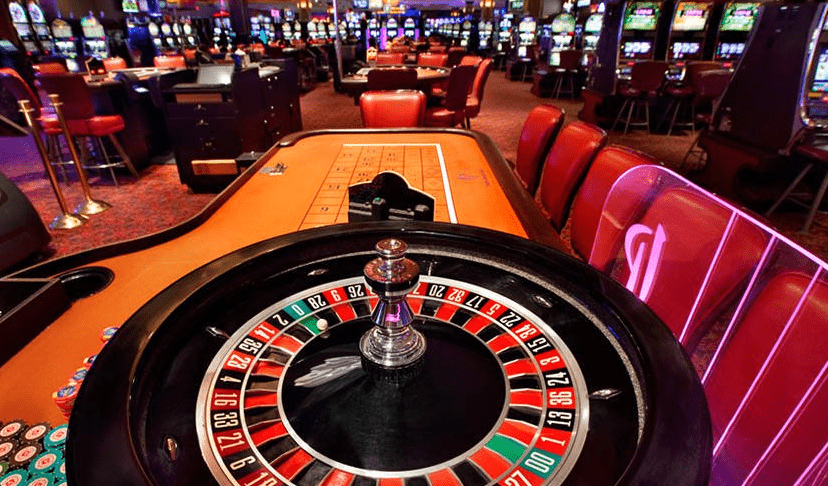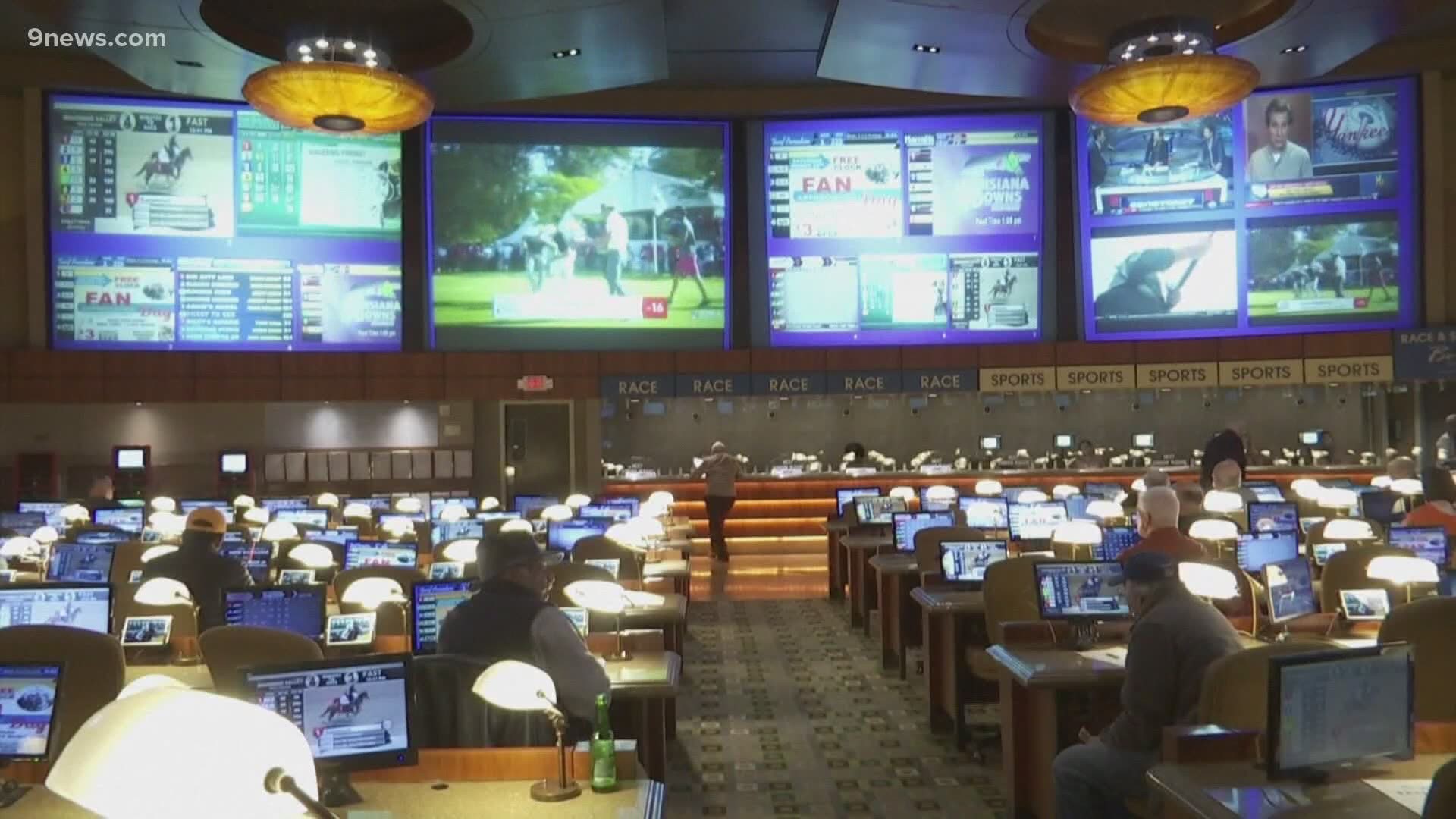Colorado Gambling Laws
- Casino Gambling: Legal
- Poker: Not Legal
- Horse Racing Betting: Legal
- Dog Racing Betting: Legal(OTB only)
- Lottery: Legal
- Daily Fantasy Sports: Not Specified
- Charitable Gaming: Legal
- Social Gambling: Legal
- Online Gambling: Not Specified
The Rocky Mountain State has a strong libertarian political streak that leads to a“hands-off” approach to vice. Colorado was the first American state to legalize the recreational use ofmarijuana and the first to reap the massive financial benefits of that action.
This is a beautiful state, taking up most of the southern Rocky Mountains. Seated atthe continental divide, the state is an interesting blend of the traditional and the contemporary. Gamblers inColorado enjoy a generally-relaxed policing atmosphere, with legal casino gambling, social gambling, charitygames, lotteries, and other markets available in a regulated form.
On this page we cover the legal status of gambling in this state, as well as discusswhether or not it is actually legal to gamble online in Colorado.

Laws and Regulations - Gaming Laws and Regulations - Gaming The Secretary of State's office publishes the Code of Colorado Regulations, the official record of all administrative rules adopted by State agencies. Colorado Limited Gaming Act with Constitutional Amendment - updated 5/6/20. Colorado has similar tax laws to most states when it comes to gambling wins and losses. All wins are subject to both federal and state income taxes — not just those over the W2-G threshold. While you can offset gambling losses on your tax returns, there are two key points to keep in mind.
Before we dig deep into Colorado gambling law and state gaming tradition, let’s startby setting the stage. The numbers below should give you some context for the rest of the information we share.You’ll notice, right off the bat, that Colorado is a gaming powerhouse, and that the state earns a huge chunk oftheir total revenue from gaming taxes.
Colorado Gambling Laws
- Age Requirements
- 21
- Approximate Annual Gambling Revenue
- $745 million
- Approximate Annual Gambling Taxes
- $100 million
- Number of Commercial Casinos
- 38
- Number of Rancinos
- 0
- Number of Tribal Casinos
- 2
- Casino Regulatory Body
- Colorado Division of Gaming
- Lottery National Rankings
- 21st
Clearly, gaming is big business in Colorado. The state’s other big revenue-generating venture, the sale ofretail and medical marijuana, is making headlines worldwide for generating $75 million for the state. Meanwhile,reliable old casino gambling is outpacing even the state’s firestorm of weed sales figures. With Colorado gaminglaw still very much in flux, we think the comparison between the newly-launched retail marijuana market and therelatively-new casino gambling industry in the state is apt. It’s tough to put your finger on exactly what typesof gaming are legal and illegal in the state. The next section is dedicated entirely to a long look at Coloradogaming statutes.
The legal status of different types of gambling in Colorado depends heavily on where in the state you’relocated. Colorado has relaxed gambling laws, in part because the state defers to county and municipal law whenit comes to gaming regulation.
The easiest way to understand a state’s policies toward gambling is to start with their definition of theterm. According to Section 18-10-101 of the Colorado criminal code, “Gambling” refers to the act of
That’s a laborious and thorough definition of gambling that would seem to preclude just about any form ofbetting.
But the law continues with some exceptions. Here they are, as taken directly from the state law books:
- “Bona fide contests of skill, speed, strength, or endurance in which awards are made only to entrants or the owners of entries.”
- This protects athletic competitions and some carnival and amusement games. Online poker players and sports bettors ought to perk their ears up at the word “skill” in the definition, as it might be used to establish that certain online games are excepted from state gambling law.
- “Bona fide business transactions which are valid under the law of contracts.”
- This means that any commercial gambling interest allowed to exist by the state government is protected from prosecution. It’s a gentler form of the exception in many state law books that allows any form of gambling that the state says is legal to exist.
- “Other acts or transactions now or hereafter expressly authorized by law.”
- This line basically grants the state the right to legalize and regulate any gambling game that they want. It’s a catch-all that any student of state gambling law will recognize as a common tactic of centralized governments.
- “Any game, wager, or transaction which is incidental to a bona fide social relationship, is participated in by natural persons only, and in which no person is participating, directly or indirectly, in professional gambling.”
- This line is responsible for Colorado’s famous social gambling allowance. Believe it or not, this is the only line referring to private or in-home gaming. It’s elegant, and it gives people in Colorado a lot of leeway when it comes to private poker games or other contests.
Some forms of gambling are legal regardless of where you are in the state. The Colorado Lottery operates afew state lottery games and regulates Colorado resident’s participation in larger lottery systems. The ColoradoDivision of Racing regulates all live and OTB wagers on horse racing events in the state. The Colorado Secretaryof State’s Office licenses and regulates bingo, charitable raffles, and other charity games.
Social gambling is particularly popular in the state, thanks in large part to relaxed laws about the practice. ByColorado law, a private game is legal as long as there is a legitimate social relationship between the playersand there’s no profit motive for the host. By law, players must know each other outside of the context ofgambling activity. Do we think that law enforcement is going around to private games establishing a legitimatesocial relationship? No – but it’s best to stay safe and keep your private game legal in the eyes of theAttorney General.
The state’s willingness to defer to local law has led to the creation of three casino gambling areas in threeColorado cities – Cripple Creek, Black Hawk, and Central City. Municipal governments in these areas have chosento host limited casino gambling. No game can allow wagers of more than $100, and certain card and dice games(namely blackjack and craps) aren’t allowed.

You may be thinking that Colorado law is extremely liberal. Up to this point, it is. Where the state’s gaming lawgets strict is when you bring up the subject of online gambling.
According to the Colorado Department of Revenue, online gambling is illegal. “Internet gambling is illegalunder state and federal laws,” says the Department of Revenue’s website. “Colorado law prohibits thetransmission or reception of gambling information by any means.”
Let’s take a look at this. For “gambling” to occur, by Colorado statute, there must be three elementspresent.
- Consideration – this refers to payment.
- Chance – this refers to luck.
- Reward – this refers to prizes won during gambling.
All you need to do to make a gambling activity legal in Colorado is to eliminate one of these factors.Unfortunately, by that loose definition, any traditional form of online wagering could be considered an illegalbet.
The Department of Revenue also leans heavily on the UIGEA bill and the Interstate Wire Act in theirexplanation of why online gambling is illegal. We think this is a dubious practice – deferring to federallaw in a state where local laws are sacrosanct.
Here’s a problem with the Department of Revenue’s statements on the matter – there is no express prohibitionagainst online gambling anywhere in Colorado’s statutes or penal code. Furthermore, no Colorado citizen orvisitor to the state has ever been charged with a crime related to online gambling.
Gambling Laws In Colorado For A Bar
What would happen to a person if they were somehow charged with and convicted of a crime for online gambling?A first-offense will almost certainly be a minor misdemeanor, similar to a speeding ticket. The fine is setbetween $50 and $100. A second offense is also a misdemeanor, but a more serious one, with a heftier fine.It’s only on a third or further offense that a felony conviction is mentioned, and fines shoot up as high as$25,000. It seems the state is far more concerned with systematic and problematic gambling than a singleincident of illegal wagering.
We field lots of questions about the legality of poker tournaments, Vegas nights, and other organized formsof gambling outside the usual scope of casino, charity, and social gaming law. In many ways, Colorado law is agift to those of us that examine gaming law for a living. It is often concise, clearly-written, and thorough.But in regards to things like private poker tournaments and church- or charity-sponsored casino game nights, thelaw is pretty obtuse.
We have to depend on statements from Colorado’s Attorney General’s office and the Colorado Gaming ControlCommission and trust their judgement on this issue. Generally speaking, these two offices work closely todeal with things like poker tournaments and gaming that’s outside the scope of what the law considers“charitable.”
We discovered, in researching the legality of a private poker tournament, that games played in a person’sprivate home can be fully legal provided they aren’t identifiable as “gambling” under Colorado law. We’vealready established what has to happen in order for an activity to be described and regulated as gambling inColorado – there must be a wager, luck, and the promise of a cash prize. If any one part of this equation isabsent, then you’re not gambling.
The best way to manipulate this loophole and ensure your game is legal, regardless of what kind of game itis? Don’t charge any kind of fee at the door, or any kind of fee whatsoever. That means no “suggesteddonations” either. It also means you can’t charge a buy-in, accept any tips, or set any kind of “minimumcharge system” for entry. This covers the old “two drink minimum” loophole. You can hand out prizes andconduct any non-device gambling you want as long as you follow this rule.
If you have to charge a fee, you can’t legally hand out any prizes at all based on the results of the game ora player’s skill or luck. You can conduct a legal raffle, door prize giveaway, or drawing. But for yourprivate event to be legal, these prizes have to be truly randomly-awarded. They can’t be tied to payment orany actual success in the event. The state takes this seriously – the Colorado Secretary of State handlesall legal permitting for charity bingo, raffle, and other gambling events, and it’s big business for thestate. As far as Colorado sees things, you’re stealing from their coffers.
Once you’ve established a game without an entry fee or other charge, you’re playing a legal game, and youdon’t have to worry about intervention by law enforcement.
New Colorado Gambling Laws
Colorado Amendment 50

We already discussed the legal status of online gambling in Colorado at length. The situation is murky atbest. As far as we can tell, so long as you’re placing real-money bets at websites based offshore, you’re notbreaking the law. Don’t forget that it’d be difficult for a law enforcement body to track you down and chargeyou with a crime, considering there’s no existing language in the Colorado penal code that addresses gamblingover the Internet. If you’re genuinely concerned about the legal status of your online gambling while within theborders of Colorado, consult a legal professional with experience in gambling law in the state.
Bonus 50% up to $250
Read Review
Bonus 100% up to $1000
Read Review
Bonus 200% up to $5000
Read Review